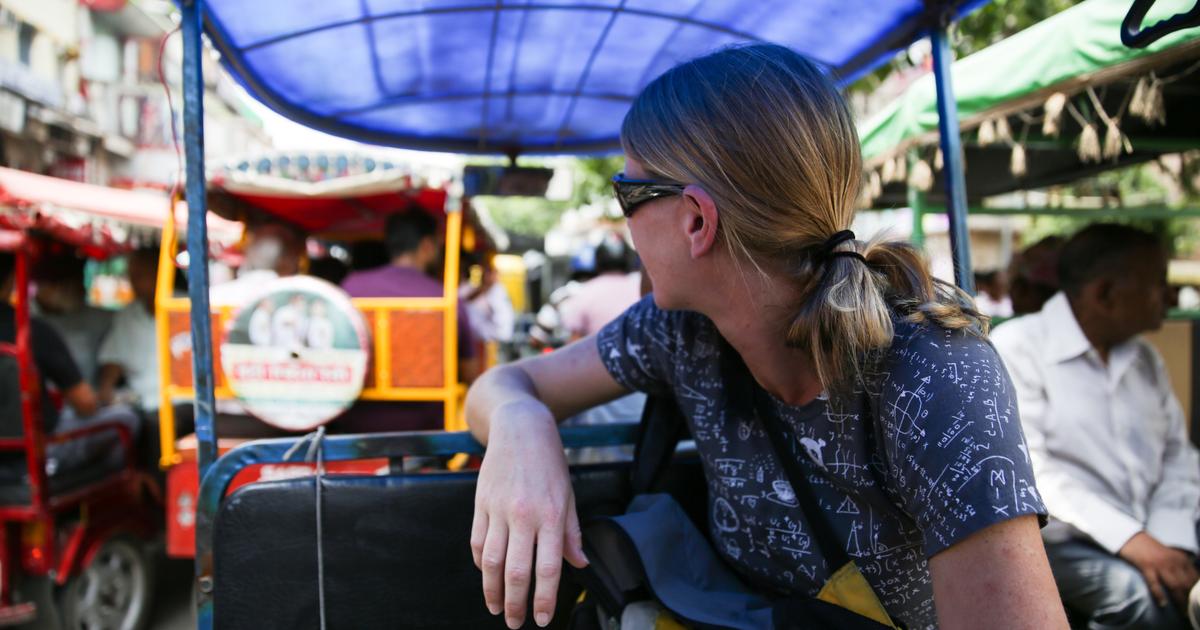India is easy, you just have to take the first plane to Delhi and there, do as in the West. No. India is the most populous country in the world: 1.4 billion inhabitants, 22 official languages, an area equal to six times the size of France. A “subcontinent” where no region resembles the other. We usually say that India is shaking up, shaking up. It's true. A trip to India requires preparation, at least a minimum: documents to obtain, rules to understand, scams to avoid. Here are some conventions to know.
Visa and... special permits
It's better to know in advance: India requires several documents from French travelers. First, a visa, the rules for obtaining which change regularly. The best ? Submit your request to VFS Global, the partner company of the Indian Embassy in France. Besides the visa, special permits are required in certain areas of Sikkim, Rajasthan, Arunachal Pradesh, Himachal Pradesh, Uttarakhand and Ladakh. These states all have one thing in common: they border China or Pakistan. Please note: it is very difficult to know the precise areas where these permits are required. In Ladakh for example, you can walk without a license in Leh, the capital, but not in the Nubra valley. Most often, these permits are easily obtained from local travel agencies.
Indians nod their heads to say “yes” and… “no”
At first, we don't understand, is it a yes or no? After a few weeks... we still don't understand. When they answer you, Indians nod their heads, but not like in the West. At home, we nod our heads up and down to say “yes” and from left to right to say “no”. The Indians move their heads like a pendulum to mean all of these at once: “yes”, “no”, “perhaps yes” and “perhaps no”. To understand, you have to pay attention to two elements: the speed of the swing and the position of the eyebrows. The higher the eyebrows and the faster the head moves, the stronger the acquiescence. On Youtube, a video full of humor will help you understand.
Indian hospitality
When you are invited to an Indian home, the table is usually covered with biscuits, dried fruits and tea. No choice: you have to taste. As long as you drink your tea, your host will refill it for you. If you don't want it anymore, just stop drinking it. If you are invited to eat, remember to wash your hands before sitting at the table, Indians do this systematically. If you forget, you will be shown the way to the sink. When entering someone's home, also remember to take off your shoes.
Anticipate some scams
It's a classic: you leave the airport, you give the address of your hotel to a taxi, but the driver tells you that the establishment has closed and offers you another room, elsewhere. Don't believe a word of it and insist or call another driver. This scam has variations: are you looking for the tourist office? Oh no, he's out of business, buy these tickets instead. These lies have only one goal: to make money in the form of commission for the person who wants to take you elsewhere.
Prepare to be (very) in demand
Are you a Western tourist? People will stop you to exchange a few words and take a photo with you. If you are blonde, then you will feel like a celebrity. In big cities, it happens that insistent passers-by follow you for several minutes. Some just want to chat, to be interested in you. Others end up offering to come to their business or travel agency. Mistrust. To greet someone, you say “namaste” (hello and goodbye) by clasping your hands in front of your chest as if you were saying a prayer.
The Indians drive on the left, but...
The Indians drive on the left. It seems. In reality, vehicles share the road with pedestrians, cows and carts. In the city, it's chaos: locals are moving in the wrong direction, overtaking in all directions. Driving in India? An unnecessary risk: choose car rentals with driver, safer but also... cheaper than simple cars.
No, Indians are not Nazis
We see it everywhere, in Hindu temples, Buddhist monasteries, as pendants: this small cross with four hooks, each arm of which is bent at a right angle. Yes, the swastika, the swastika. The Indians are obviously not followers of the 3rd Reich. This sign has been used for over a millennium in Hinduism, Buddhism and Jainism. It symbolizes peace and hope. The term “swastika” comes from Sanskrit (the language of Hindu and Buddhist religious texts) and means “conducive to well-being” or “to be honest,” depending on the translations. Adolf Hitler used the swastika as a symbol of Aryanism. Its version is slightly different from the original: on the Nazi flag, the cross is tilted 45 degrees to the right.
Begging: to give or not?
People in the street, children, cripples. They live and sleep on the sidewalk, they beg. There are millions of them. Going to India also means confronting that, great poverty, and being asked for your wallet. By giving, you risk attracting other beggars and this can quickly become difficult to bear. Some solicitations are scams: the money you offer a child could end up in the pocket of a trafficker. Travel experts advise offering food rather than cash. Should you give or not? There is no right answer to this question.
IN PODCAST - How to avoid oddities abroad? Advice from a good manners expert

